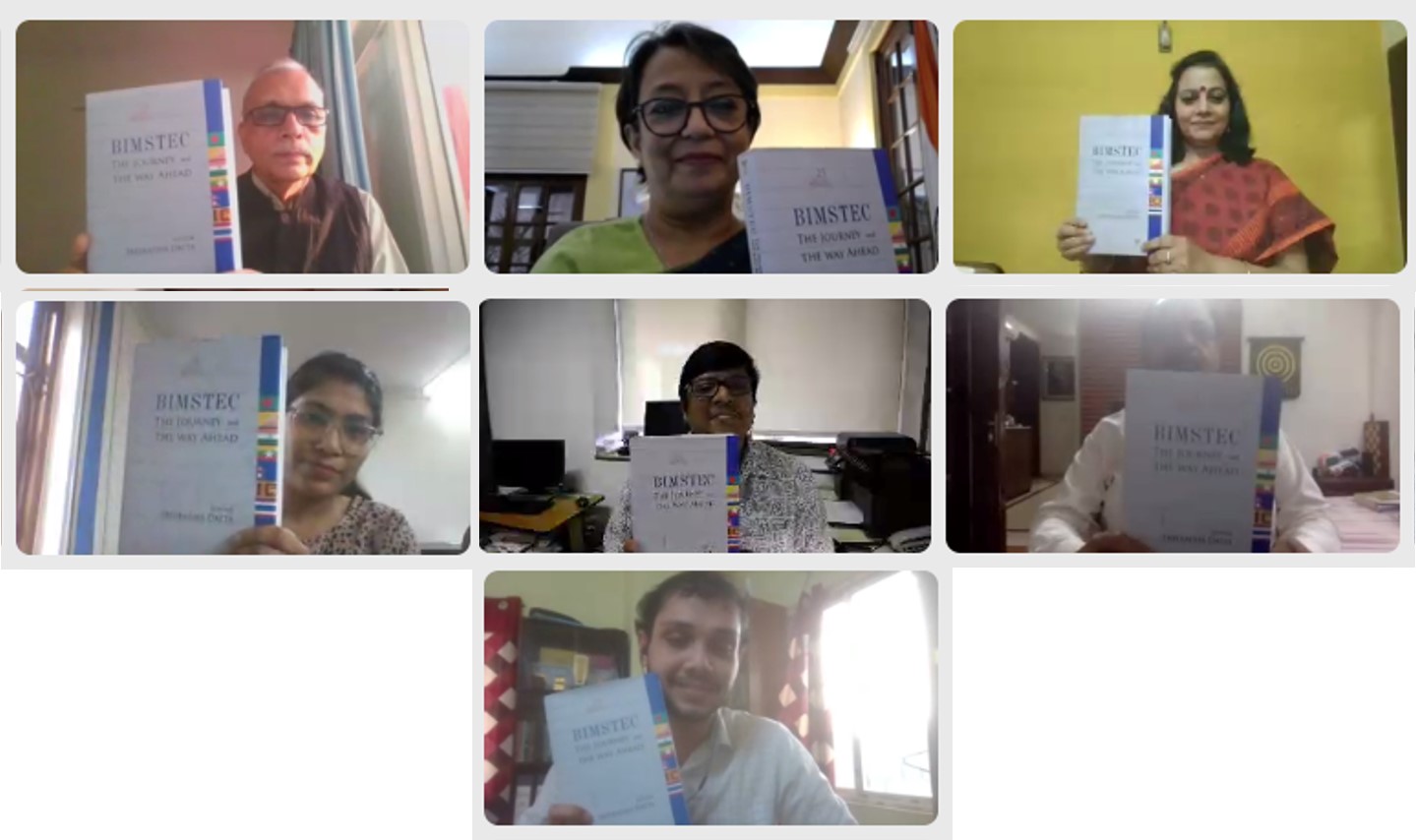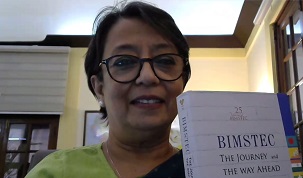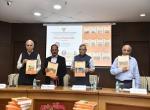On 30 September 2021, the Vivekananda International Foundation organised a virtual book launch session of the book edited by Dr Sreeradha Datta ‘BIMSTEC: The Journey and The Way Forward. The book was formally released by Ms Riva Ganguly Das, Secretary (East), Ministry of External Affairs, who was also the keynote speaker of the book launch session. Dr Arvind Gupta, Director VIF, delivered the opening remarks and welcomed the contributors and discussants. The discussants for the book were the authors - Dr Sreeradha Datta, Senior Fellow, VIF; Admiral Jayanath Colombage, Foreign Secretary, Sri Lanka; Amb Hemayut Uddin, Former Foreign Secretary, Bangladesh; Amb Shambhu Simkhada, Former Diplomat, Nepal and ProfChaw Chaw Sein, Yangon University, Myanmar. And Shri Rajan Arya, the Pentagon Publisher, gave the vote of thanks.
Dr Gupta stated that the book is a timely publication as the next year, 2022, marks the 25 years of BIMSTEC establishment. Earlier, the VIF was the BIMSTEC Security Dialogue host in 2018 and 2019. The BIMSTEC countries share a lot of commonalities that forms the basis for unifying the forces together. However, as is known BIMSTEC organisation lacks robust institutional structures. The organisation has limited meetings and there is benign neglect at the political level. Nevertheless, in the time of need, especially during the COVID-19 pandemic, the countries have come together and supported each other. The current times are also affected by the return of great power rivalries.

Ms Riva Ganguly Das appreciated the book as a collaborative effort that has elaborated on the political, social, economic, security-related information for the BIMSTEC countries. The book’s postscript makes some important policy recommendations based on the chapters written, which are useful for policymakers, academicians and research scholars. At the Indian Prime Minister’s swearing-in ceremony, the participation of BIMSTEC countries reflected the growing importance of the region. BIMSTEC countries are an important part of India's foreign policy, reflected in India's ‘Neighbourhood First’ and ‘Act East’ policies. India organised several activities in 2017 and 2018 to advance the ‘Agenda for Action’ adopted by the leaders at Goa’s retreat in 2016.
The discussion highlighted the structure of the book, 24 chapters, which are divided into six parts, including the postscript. The book comprises of ideas and perspectives of 30 authors from the member countries. The first section begins with the formation of the region and regionalism. The section brings into focus the importance of evidence-based policymaking. The second section describes the sectors of cooperation, such as, technology, climate change, and ocean system, and disaster, risk management. The third section reflects the social and cultural perspectives, including media, poverty, gender and culture, especially Buddhism. The fourth section is about the economic structures, i.e. the trade and investment scenarios, the FDI policies and the energy sector. The fifth section focussed on security and defence. And the final section is about the core essence of the book, which is the way forward. Finally, the postscript summarises the book with the key findings, short term and long term recommendations.
The implications of COVID-19 were also discussed. The discussion also reflected the challenges faced by the BIMSTEC countries in terms of illegal migration, radicalisation, drugs and human trafficking, terrorism, cyber security and so on. The current crises in Afghanistan and its impact on BIMSTEC member countries were also discussed during the event. And finally, it is crucial to address the problems that have made the institution less active. To solve the crises, the role of regional and multinational organisations was highlighted. The countries need to formulate a BIMSTEC strategy for the Indian Ocean region, security and economic interest. There is a need for a new paradigm - the power interest paradigm.
To conclude, the book envisions common strands of expectations and optimism in each of the chapters. Moreover, the most interesting thing about this particular volume is that each author has evaluated the country-specific issues, which are essential to understanding the true nature of the BIMSTEC countries and organisation as well as applying the good practices to all the member countries. Finally, Dr Gupta concluded the session and reiterated the need for regular dialogues on the changing global and regional situations. And he hoped BIMSTEC would see greater momentum.






Post new comment